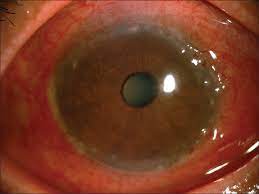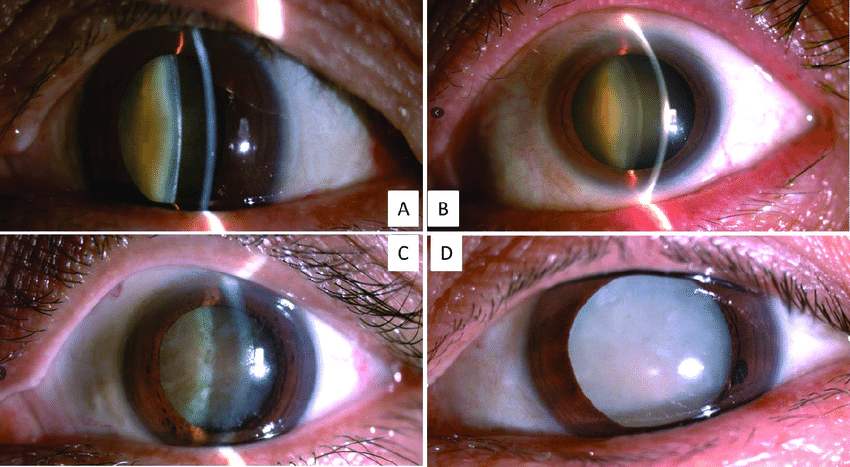Immature Cataracts are a natural part of aging. Sadly, many cataract surgeries are often performed on people who are too young, causing severe complications and pain for patients. Luckily, there is a way around this! Cataracts in children can usually be treated with relative ease, and the benefits to their eyesight far outweigh the risks of surgery. Cataracts are one of the most common eye conditions, and they can be a serious problem. In this article, we will discuss what an immature cataract is and how it is treated. We will also provide some helpful tips on how to identify an immature cataract and get it treated as soon as possible. If you or a loved one suffers from an immature cataract, read on for information that can help you take steps to improve your vision and restore clarity to your sight.
Contents
What is an Immature Cataract?

An immature cataract is a type of cataract that is still in the development stage. This means that it hasn’t reached its full potential, and may need additional treatment or care than a mature cataract.
Immature cataracts are characterized by cloudy areas in the lens, causing low visibility. These may include both dense and isolated areas, with some clear lens fibers
The main difference between an immature and a mature cataract is that an immature one is likely to be smaller and have a rougher surface than a mature one. This is because the process of becoming fully developed often involves growth and change within the lens itself, which can cause the structure to become more irregular.
In most cases, an immature cataract will not require any treatment other than monitoring. If it starts to cause problems such as vision loss or pain, then treatment may be necessary.
Signs of an Immature Cataract
An immature cataract is a type of cataract that is not fully developed. It can often be detected by the doctor during a routine eye exam. Signs of an immature cataract include blurred vision, difficulty seeing in faraway areas, and light sensitivity.
When someone has blurred or dimmed vision, it’s important to speak to an eye doctor as soon as possible. Some symptoms of cataracts may include increased eye pressure, cloudiness of the lens, double vision, and sudden changes in eyeglasses.
Cataracts can result from various injuries, exposure to heat or radiation, and the aging process. However, the majority of them are ‘senile’ cataracts, which are believed to be a part of the aging process.
Does Immature Cataract Need Surgery?
The best option for those who have cataracts is removal while they are still immature. From the start, it will help with surgery and recovery time. It also means that you’ll avoid significant visual impairment and be able to see clearly sooner.
Cataract surgery involves replacing the cloudy lens with an artificial one. This artificial lens is placed in the same position as your natural one, and becomes a permanent part of your eye. For some people, other eye problems make it impossible to use an artificial lens.
Causes
There are various causes of immature cataracts. They are as follows:
- Aging.
- Diabetes.
- Excessive exposure to sunlight.
- Smoking.
- Childhood obesity.
- High blood pressure.
- Previous eye injury or inflammation.
- Previous eye surgery.
How Are Immature Cataracts Diagnosed?
It can be difficult to tell if a person has cataracts without proper testing. An eye care specialist will typically use various tests to make this diagnosis, including a visual acuity test and pupil dilation. Your ophthalmologist or optometrist may need to perform a series of tests in order to determine whether you have cataracts.
Visual Acuity
A visual acuity test can assess your vision in a variety of ways, including measuring the amount of light your eyes can see with lenses out or whether you’re able to see something from the center of your retina. These tests measure how well you can see at different distances. Sometimes the results are recorded as a ratio, such as 20/20 or 20/40. Depending on what you hear at the end of your auditory acuity test, either 20/20 or 20/40 is considered normal vision.
Visual acuity tests can be an easy, painless, and quick way to determine if you have vision problems. If the doctor diagnoses you with cataracts, more tests will be needed.
Pupil Dilation
When your eye is dilated, the pupil will increase in size. This means that it’s easier for your physician to see the whole lens when examining the eye. By assessing the lens, they’ll be able to determine if an eye condition like cataracts is affecting your vision.
Treatment for an Immature Cataract
There are a few different treatment options available for immature cataract treatment. The first option is to simply wait and see if the cataract will mature on its own. This is often the case with small, immature cataracts. However, if the cataract is large or causing significant vision problems, surgery may be necessary to remove it.
Another option is to treat the underlying cause of the cataract if one can be identified. For example, if diabetes is causing an immature cataract to form, treating diabetes may help slow or stop the progression of the cataract.
The third and final option is surgery to remove the immature cataract. This is generally considered when other options have failed or are not suitable. Surgery carries a risk of complications, but it is often successful in restoring vision.
Immature cataract surgery
There isn’t a specific time when it’s necessary to remove cataracts. It really just depends on the individual’s situation and his or her preferences. For most people, there’s no rush to remove cataracts because they usually don’t do any harm to the eyes. If you have diabetes, high blood pressure or obesity, it’s possible that your cataracts will worsen more quickly than usual (although delaying surgery won’t affect how well your vision recovers if you decide in the future you want to have surgery). The decision is up to you and your doctor so take your time and talk about all of your options before deciding which option is right for you.
The most common type of surgery for an immature cataract is called phacoemulsification. This procedure uses ultrasound waves to break up the cataract so that it can be removed through a small incision in the eye. Phacoemulsification is usually very successful in treating immature cataracts and typically has a quick recovery time.
Another option for treating an immature cataract is to surgically remove the lens of the eye along with the cataract. This procedure, called lens extraction, is often used when phacoemulsification is not an option or if it has been unsuccessful in treating the cataract. Lens extraction requires a larger incision than phacoemulsification and has a longer recovery time, but it can be very effective in treating an immature cataract.
If you don’t go through cataract surgery now, your eye doctor may recommend periodic follow-up exams to see if your cataracts are progressing. How often you see an eye doctor depends on your condition.
How To Prevent Immature Cataracts?
There is no sure way to prevent immature cataracts from forming. However, there are a few things that may help reduce your risk. These include:
There is no sure way to prevent immature cataracts from forming. However, there are a few things that may help reduce your risk. These include:
- Wearing sunglasses or a hat when outdoors to protect your eyes from UV light
- Eating a healthy diet that includes plenty of fruits and vegetables
- Exercising regularly
- Not smoking
- If you have diabetes, keeping your blood sugar levels under control
Patient Care
It is important to avoid injuring patients who may have poor eyesight by administering eye drops that have mydriasis and vasoconstriction properties in them.
A common practice for almost any surgical procedure is to opt for local anesthesia. Medications are given in order to make the patient fall asleep, and this usually happens within a day.
It’s important to be observant when checking in with a patient after surgery. People may experience an increased feeling of eye pain, nausea, and vomiting – these are the signs they should watch out for. When they present, they need to be assessed and treated promptly to prevent further complications.
Conclusion
An immature cataract is a lens-related problem that can gradually lead to vision loss. In most cases, an immature cataract is identified through a physical examination of your eyes by your optometrist. Treatment typically involves removing the cataract using surgery or cryotherapy, followed by a period of rehabilitation. If you are experiencing significant vision impairment and would like to discuss treatment options with an eye doctor, please don’t hesitate to seek help.
Cataract surgery is a safe and painless procedure. At MantraCare we have a team of experienced eye surgeons, who will be happy to answer any questions on cataract surgery. Call us at +91-9711116605 for any inquiries.
